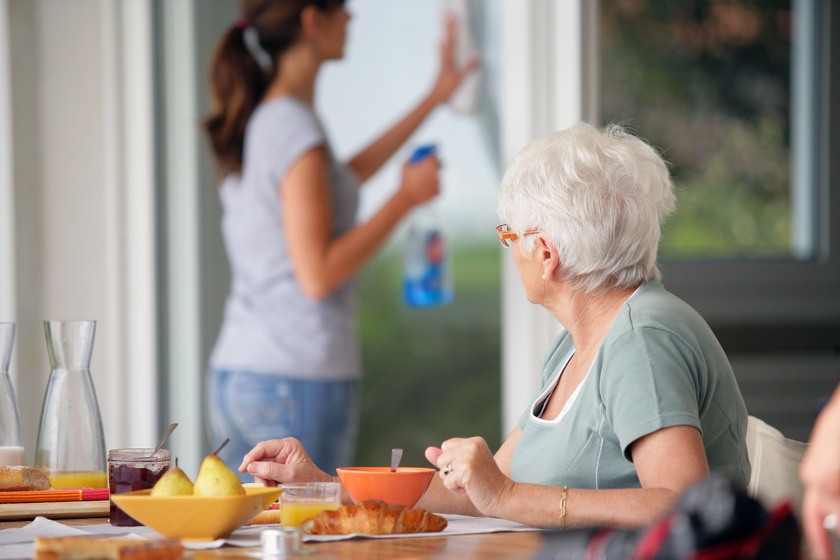Most people are now aware that getting COVID-19 symptoms gets worse as you get older. The likelihood of a serious disease is also increased by underlying medical issues. Your loved ones should thus take extra steps to keep their houses clean and sterilized to stop the transmission of germs in order to protect themselves from infectious diseases.
Your loved ones should have confidence that common spaces are properly and routinely cleaned. Some of your loved ones could also hire a housekeeping service to clean their own residence. Nearly all duties for residents in assisted living or skilled nursing facilities may be performed by professional cleaning personnel. Independent living residents can, however, take care of certain crucial cleaning and sanitizing activities on their own.
Cleaning in any way is beneficial in the battle against the microorganisms that cause COVID-19 and other disorders. However, your house might be safer if you clean more frequently and properly. In this article, we go through the fundamentals of cleaning and disinfection that your loved ones should be aware of – and how housekeeping services at Jacksonville, FL retirement homes ensure a clean and disinfected space.
Difference Between Cleaning and Disinfecting
The language might be confusing since there is so much information regarding cleaning and disinfection. Cleaning is the process of removing germs or dirt from a surface, often using soap and water. Disinfecting is the process of utilizing a chemical formulated for that purpose to really eliminate any pathogens, including hazardous bacteria and viruses. Cleaning and disinfection must be done in tandem to maintain your house as germ-free as possible.
Cleaning Products that are Safe for Your Loved Ones to Use
In the wake of COVID-19, the Centers for Disease Control has released simple-to-follow cleaning and disinfection instructions. A list of cleaning products approved by the EPA that the general public can use for regular cleaning duties is included in their recommendations. Residents of the community can use this list just like everyone else. Here, you may discover well-known brand names like Lysol, Clorox, and Scrubbing Bubbles. Since there is a strong demand for these things and stores occasionally run out, it is a good idea to stock up on them.
What to Clean at Home to Prevent the Spread of COVID-19
In order to create a community that is healthier, it is a good idea to regularly conduct general, basic cleaning duties. Additionally, after anybody visits — including home health aides, delivery personnel, or visitors — you should wipe down any high-touch surfaces. Be mindful of the visitor’s usage of any dishes or glasses, as well as the door knobs, table surfaces, and light switches.
Many of our loved ones would rather order food, supplies, or other items than go shopping. This can be required in times of quarantine. If someone else drops off items at your house, make sure to clean any surfaces they may have touched, such doorknobs. Although the danger of getting COVID-19 is reduced on porous surfaces due to the COVID-19 virus’s shorter half-life, you should still be extra cautious and wash your hands after opening any parcels or mail.
Cleaning After Grocery Shopping or Other Trips
If you want to go out, you should consider the goods you bring home and their potential to spread the illness. We now understand that there is minimal danger of COVID-19 transmission on cardboard packaging as aforementioned. However, health professionals recommended that you set your purchases on the floor as soon as you get home after an expedition, such as grocery shopping, and wash your hands for at least 20 seconds with soap. Fresh vegetables need simply be rinsed with water; other products do not need to be cleaned or washed. Immediately after putting the goods away, rewash your hands.







